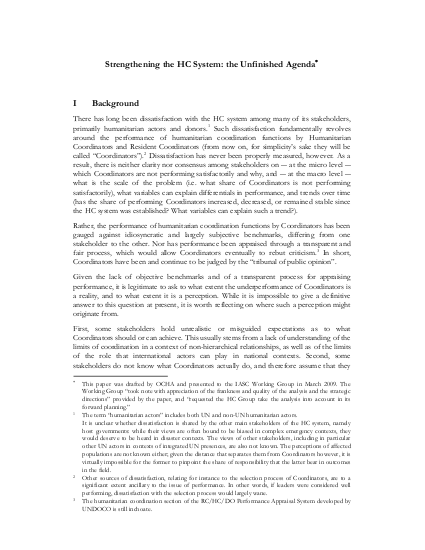
There has long been dissatisfaction with the HC system among many of its stakeholders, primarily humanitarian actors and donors.1 Such dissatisfaction fundamentally revolves around the performance of humanitarian coordination functions by Humanitarian Coordinators and Resident Coordinators (from now on, for simplicity’s sake they will be called “Coordinators”).2 Dissatisfaction has never been properly measured, however. As a result, there is neither clarity nor consensus among stakeholders on ? at the micro level ? which Coordinators are not performing satisfactorily and why, and ? at the macro level ? what is the scale of the problem (i.e. what share of Coordinators is not performing satisfactorily), what variables can explain differentials in performance, and trends over time (has the share of performing Coordinators increased, decreased, or remained stable since the HC system was established? What variables can explain such a trend?).
Rather, the performance of humanitarian coordination functions by Coordinators has been gauged against idiosyncratic and largely subjective benchmarks, differing from one stakeholder to the other. Nor has performance been appraised through a transparent and fair process, which would allow Coordinators eventually to rebut criticism.3 In short, Coordinators have been and continue to be judged by the “tribunal of public opinion”.